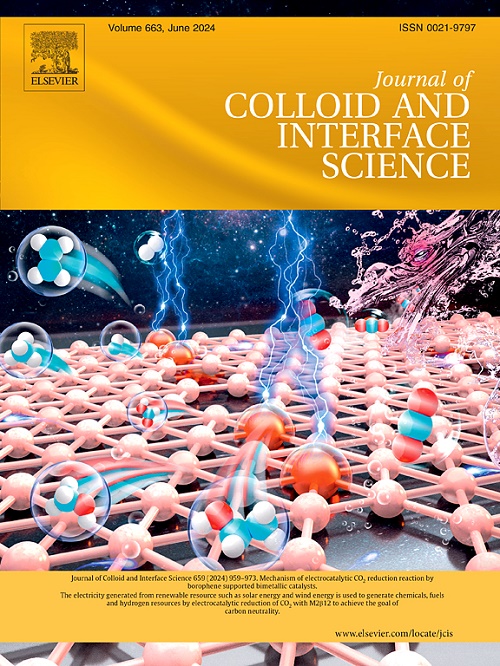Biomimetic mineralized mesenchymal stem cell-derived exosomes for dual modulation of ferroptosis and lactic acid-driven inflammation in acute liver injury therapy
IF 9.4
1区 化学
Q1 CHEMISTRY, PHYSICAL
引用次数: 0
Abstract
Acute liver injury (ALI) is characterized by rapid and severe hepatocellular damage, leading to ferroptosis and an exacerbated inflammatory response. Mesenchymal stem cell-derived exosomes (MSC-exo) have emerged as a promising therapeutic strategy for ALI due to their ability to deliver antioxidants and stabilize solute carrier family 7 members 11 (SLC7A11)/glutathione peroxidase 4 (GPX4) system. In this study, we developed a novel engineered exosome, MSC-exo/MnO2@DEX, by encapsulating the anti-inflammatory drug dexamethasone (DEX) within MSC-exo and modifying its surface with manganese dioxide (MnO2) via a bionano-mineralization approach. MnO2 exhibits multi-enzymatic activity, enabling efficient scavenging of reactive oxygen species (ROS), such as hydrogen peroxide and superoxide anions. When combined with MSC-exo, MnO2 not only reduces ROS levels and generates oxygen but also stabilizes the SLC7A11/GPX4 axis, thereby protecting hepatocytes from ferroptosis. Concurrently, DEX suppresses the nuclear factor-κB (NF-κB) signaling pathway, inhibits macrophage M1 polarization, and alleviates hepatic inflammation. The oxygen produced by MnO2 catalysis further mitigates hypoxia, decreases lactic acid accumulation, and downregulates histone lactylation, synergizing with DEX to enhance NF-κB pathway inhibition and amplify anti-inflammatory effects. Transcriptomic analyses revealed that MSC-exo/MnO2@DEX significantly enhances antioxidant capacity, metabolic processes, and immune function, while improving liver function and suppressing ferroptosis, lactylation and inflammatory responses. Collectively, these findings demonstrate the therapeutic potential of MSC-exo/MnO2@DEX as an effective treatment for ALI.

求助全文
约1分钟内获得全文
求助全文
来源期刊
CiteScore
16.10
自引率
7.10%
发文量
2568
审稿时长
2 months
期刊介绍:
The Journal of Colloid and Interface Science publishes original research findings on the fundamental principles of colloid and interface science, as well as innovative applications in various fields. The criteria for publication include impact, quality, novelty, and originality.
Emphasis:
The journal emphasizes fundamental scientific innovation within the following categories:
A.Colloidal Materials and Nanomaterials
B.Soft Colloidal and Self-Assembly Systems
C.Adsorption, Catalysis, and Electrochemistry
D.Interfacial Processes, Capillarity, and Wetting
E.Biomaterials and Nanomedicine
F.Energy Conversion and Storage, and Environmental Technologies

 求助内容:
求助内容: 应助结果提醒方式:
应助结果提醒方式:


